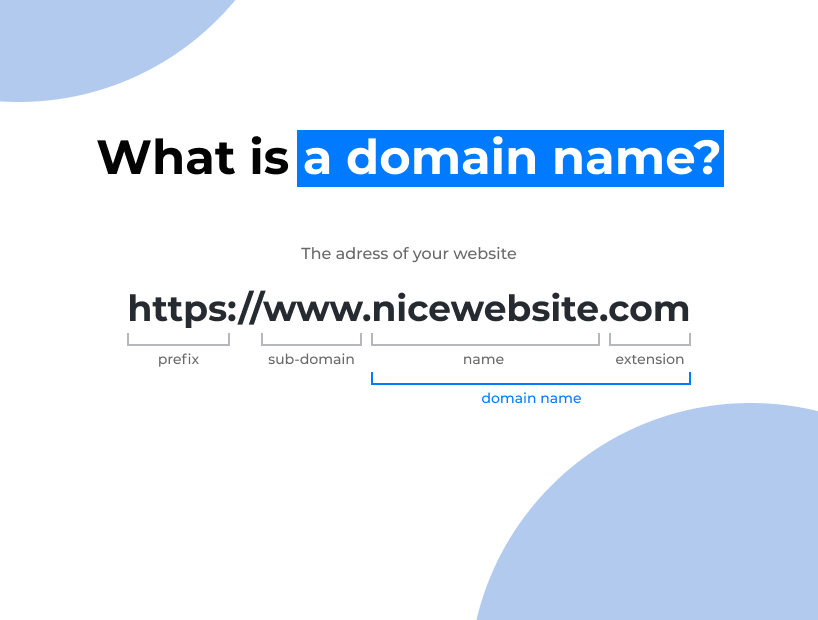The Meaning of Domain Names in Websites
Domain names are a crucial part of any website. They serve as the online address people type in their browsers to access your site. But domain names are not just random words or letters put together. They carry meanings, significance, and can even impact your website’s overall success. In this article, we will delve into the meaning of domain names in websites and why they matter.
What is a Domain Name?
A domain name is a unique string of characters that identifies a specific website on the internet. It is used to help users easily find and remember websites. A domain name consists of two main parts: the actual name (usually the brand or business name) and the domain extension (such as .com, .net, .org, etc.). For example, in the domain name “example.com,” “example” is the name and “.com” is the extension.
The Importance of Choosing the Right Domain Name
Choosing the right domain name is vital for several reasons. First and foremost, your domain name is the first thing users will see and remember about your website. It is your online brand identity, and it should reflect the purpose and values of your site. A memorable and relevant domain name can attract more visitors and give your website credibility and trustworthiness.
Moreover, search engines like Google also consider domain names when ranking websites. A domain name that contains relevant keywords can help improve your website’s search engine visibility and attract more organic traffic. It is essential to choose a domain name that is both SEO-friendly and brandable.
Common Types of Domain Names
There are several types of domain names you can choose from, depending on your website’s purpose and target audience. Here are some common types of domain names:
- Brandable Domain Names: These are unique, catchy, and memorable names that help establish your brand identity. Examples include Google.com, Facebook.com, and Amazon.com.
- Keyword-Rich Domain Names: These domain names contain relevant keywords that describe the content or niche of your website. For example, if you have a gardening website, a domain name like BestGardenTools.com would be keyword-rich.
- Geo-Domain Names: These domain names include a specific location, such as a city or country, to target a local audience. An example would be NewYorkPizza.com.
Factors to Consider When Choosing a Domain Name
When selecting a domain name for your website, there are several factors you should consider:
- Relevance: Choose a domain name that is relevant to your website’s content, niche, or target audience.
- Memorability: Pick a domain name that is easy to remember and pronounce. Avoid using hyphens, numbers, or complex words.
- SEO-Friendliness: Include relevant keywords in your domain name to improve search engine visibility.
- Brandability: Create a domain name that reflects your brand identity and values.
In Conclusion
Domain names play a significant role in a website’s success. They are more than just online addresses; they are brand identities that can attract visitors, improve search engine rankings, and establish credibility. When choosing a domain name for your website, consider its relevance, memorability, SEO-friendliness, and brandability. A well-chosen domain name can make a world of difference in your online presence.
